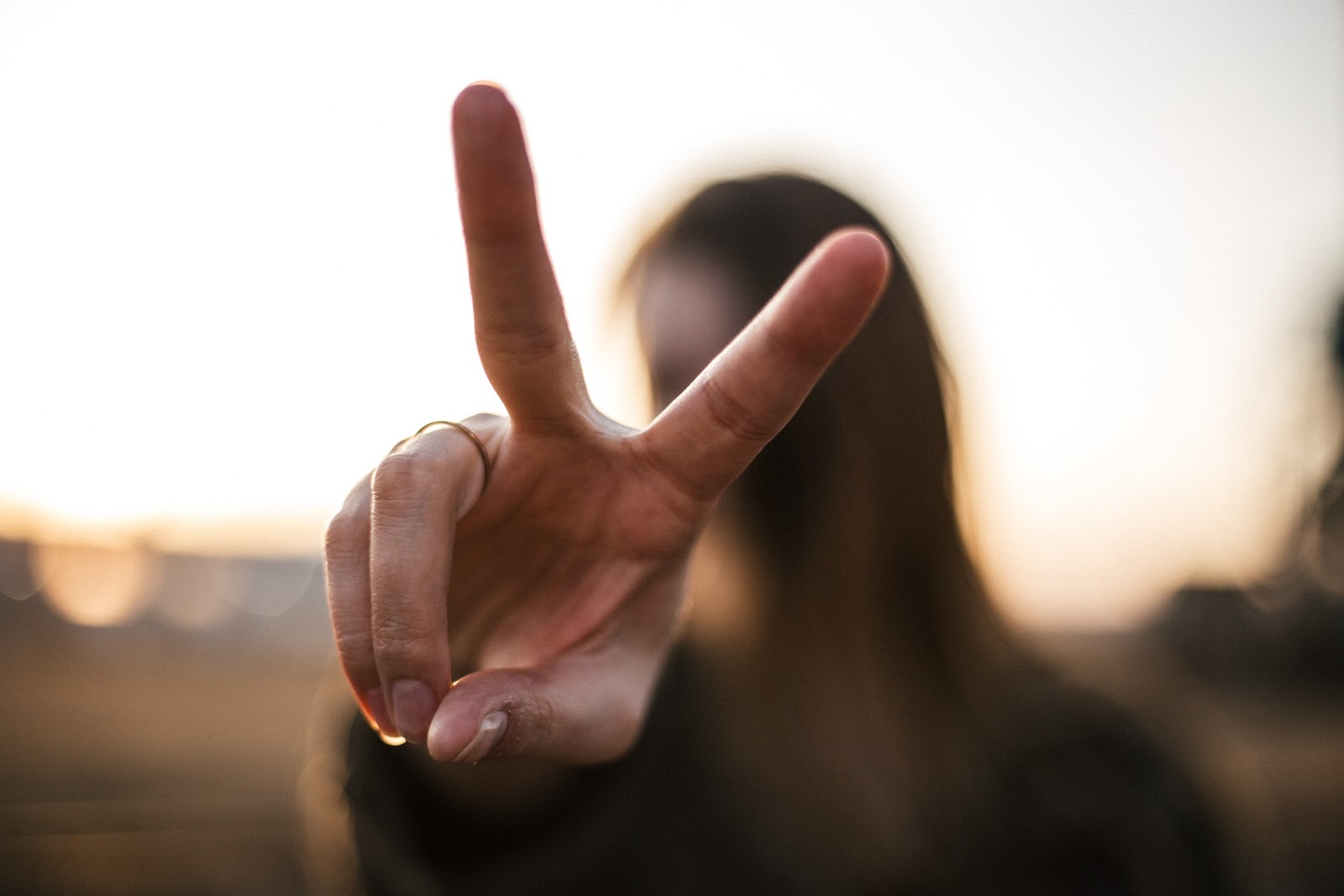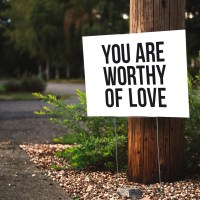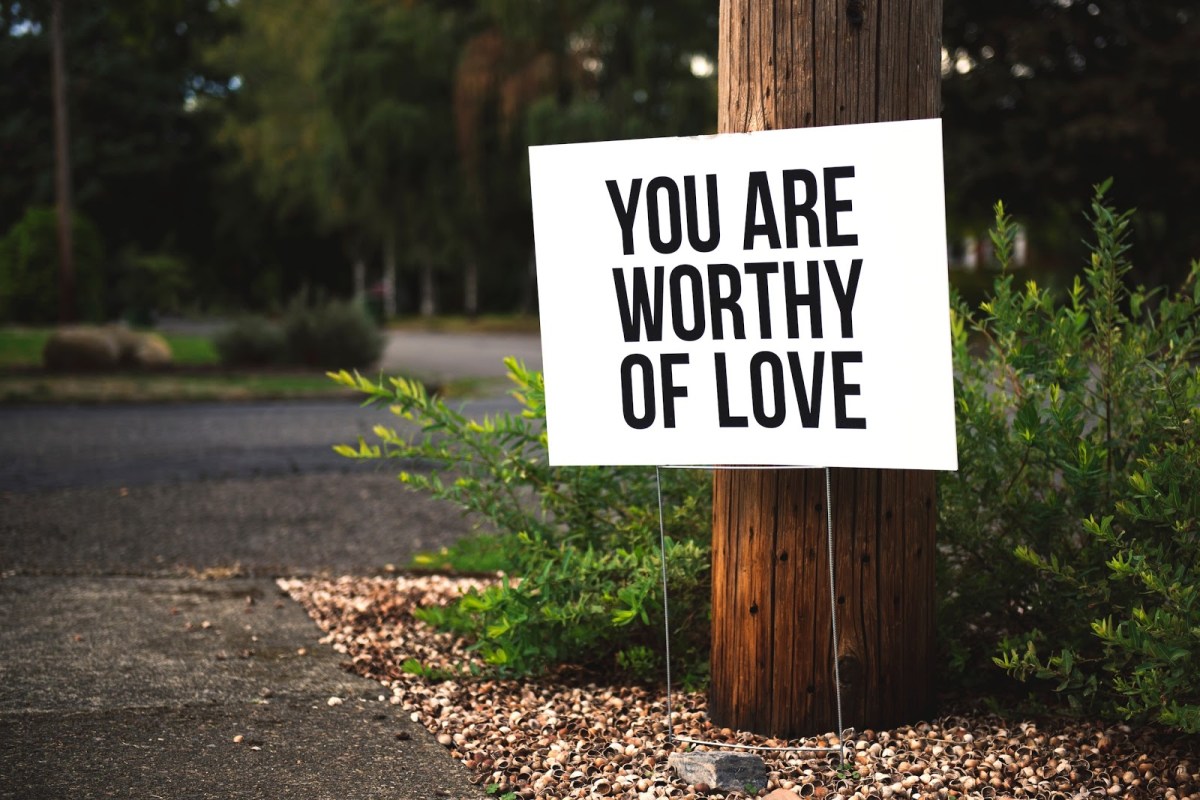Have you ever tried to forgive someone whose offense seems unforgivable? Or love someone who seems unlovable?
The problem is, it’s nearly impossible to muster up positive feelings for someone if we already feel negatively toward them. We may be able to alter our behavior (which can be helpful and healing in and of itself), but you and I both know that all the “shoulds” and “musts” in the world won’t change our hearts. Trying harder simply won’t work.
Because peacemaking starts within.
The only way we can forgive is to first be forgiven ourselves.
The only way to love is to first be loved ourselves.
And the only way to make peace is to first be at peace with ourselves.
Maybe that’s not groundbreaking news. Maybe we already know the transforming power of love. And maybe we recognize how hard it is to receive the love and forgiveness that comes our way.
But have we ever stopped to wonder why it’s so difficult? Or what block makes it so challenging for us to accept love, grace, and peace?
The truth is that it’s us.
It’s really that simple. The thing that most often gets in the way of us being loved and extending love is ourselves.

It’s typically not some outside force that keeps us from experiencing love. Often, the only thing that keeps us from experiencing love is our own belief that we have to do more to be worthy of love. We only let ourselves receive what we think we deserve.
A lot of us hold onto this belief that we have to do more, be more, be different in order to be worthy of love or forgiveness. We may not say it out loud, and we may not even know we believe it, but I’m convinced that’s the default position in our culture: proving, earning, succeeding—always climbing higher and gaining new ground.
We’re always measuring, judging, comparing; and it’s really, really hard to come out on top when we’re constantly looking around to figure out what we’re worth.
As long as we’re trying to become worthy of love, we’ll never be able to extend love to others—especially to those who are already difficult to love. If we don’t let love touch us, the love we try to give won’t be true to us, no matter how much we say we believe it.
Why’s this important?
Since we tend to hold more tightly to our internal judgment, condemnation, and expectations of ourselves than we do to love, forgiveness, and peace, when those positive emotions come our way, they bounce right off of our blockade of negativity. We can’t absorb them or the healing they offer for ourselves and others.
The truth is that without healing internally, we can’t help others heal either. We can’t be a peacemaker until we’re at peace with ourselves. We can’t love others anyway until we can love ourselves anyway.
If we can’t forgive and love ourselves, we’ll never be able to forgive and love others.
Put another way: we’ll love our neighbor as we love ourselves. 
If we can’t even love ourselves, what’re we going to do with the people we disagree with on religion or politics? Or our coworkers who have completely different perspectives on just about everything? Or authorities who hand down decisions that make our blood pressure rise?
What do we do when we see people and wars and policies hurting those on the margins? If we are unable to fully love others, we have no other options but to jump in and fight from the other side. But love offers us another way.
If we primarily carry around our concerns on pickets (literally or figuratively), they quickly become agendas on which we build our identities. The most well-intended people can become warriors for a cause, fighting with fervor, but forgetting the humanity of those on “the other side.” Forgetting to love anyway.
Think how quickly a Facebook thread goes from discourse to dissension. In the blink of an eye, someone says just one thing that makes us lose our cool, and we go from a gentle, civil interaction to self-righteous name-calling that gets nobody anywhere.
It’s proof that the only difference between taking sides and making peace is really just…love.
Love allows us to approach people on both sides of a disagreement or conflict as peacemakers. But first, we must learn to love and be at peace with ourselves.
Peacemaker Fridays are published weekly to share stories of people unmaking violence around the world. Be inspired. Take Action.


